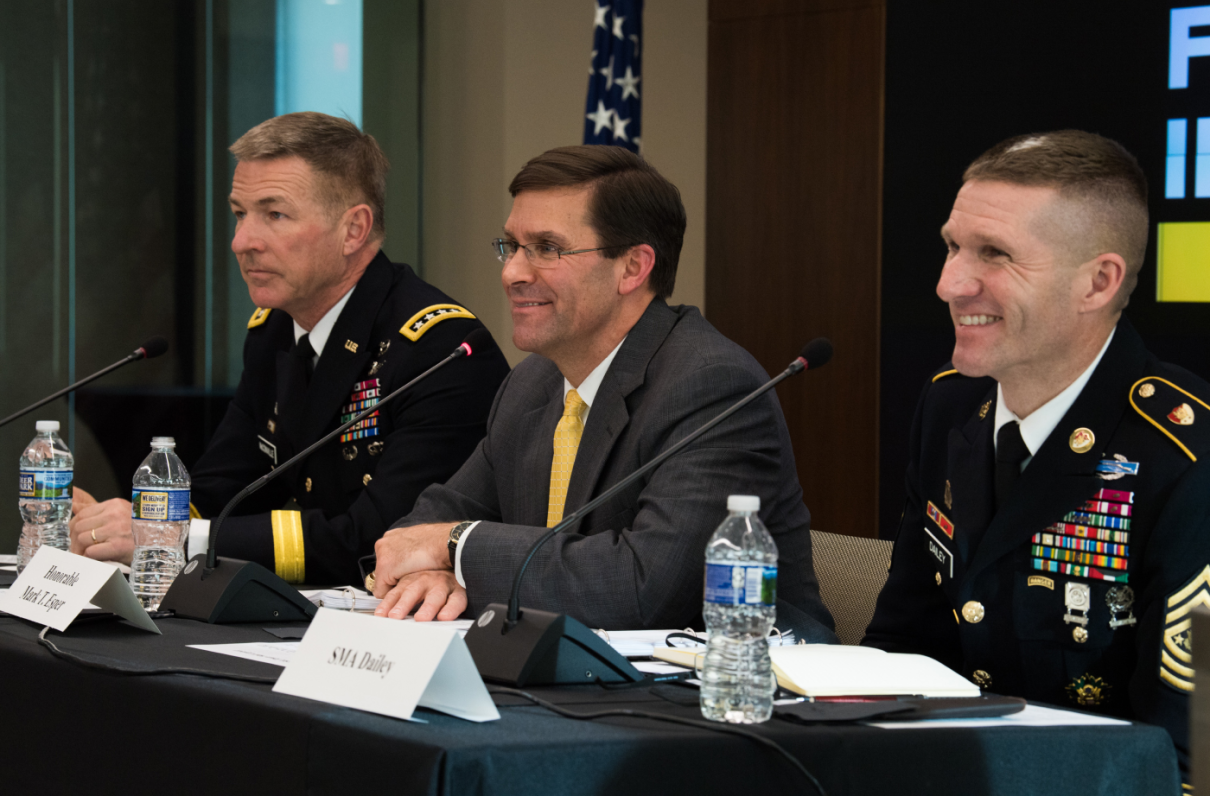Key Army leaders, both uniformed and civilian, addressed new programs and old concerns about child care, PCS reform, military housing, and spouse employment as part of a family readiness forum Feb. 5 in Arlington, Va.
Army Secretary Mark Esper, Army Vice Chief of Staff Gen. James McConville, and Sergeant Major of the Army Dan Dailey spoke at the forum, sponsored by AUSA. Among other issues, they addressed new improvements to family policies that should enhance quality of life for military families:
- In August 2018, the Army launched a new Child & Youth Service (CYS) Employee Assignment Tool (CEAT) that has streamlined the transfer processes for military spouses who work in CYS programs. Previously, military spouses working at CYS would have to go through the entire background check process each time they moved, which kept them from getting back to work and kept CYS from being fully staffed. This new policy has expedited the process.
- Esper recently updated parental leave policies to allow for non-continuous maternity leave and expand secondary caregiver leave from 10 days to 21 days.
- Policies already in place streamline and expand home business options for military spouses and allow more options for family readiness groups to fundraise.
Check out video of the forum here, and send Esper your questions here.
[RELATED: Pentagon Weighs Privatizing Military PCS Moves]
What to Expect Next
To address concerns with health and safety in military personnel and family housing, the Army has reallocated money to remove tenants from poor and failing Army housing by FY 2021 and eliminate those substandard homes by FY 2026.
The Army is also working to implement a reimbursement program for military spouses who need to be relicensed for their occupation when they PCS. This is a result of the FY 2017 National Defense Authorization Act, which included a provision to reimburse military spouses up to $500 for costs associated with getting relicensed due to PCS moves.
Another hot topic of the forum was PCS reform. While families experienced a “brutal” PCS season this past summer, the Army is working to ensure this does not happen again by increasing quality assurance inspections of household goods (HHGs), opening online customer satisfaction scores by moving company, and establishing a 24/7 hotline for any moving concerns. Additionally, the Army is developing policies to ensure first term and junior enlisted are assigned sponsors and to allow participants in the Exceptional Family Member Program (EFMP) more say in their duty assignments, ensuring they have the resources their family needs.
MOAA's Efforts
MOAA has voiced the concerns of the currently serving and their families to military service leadership and members of Congress, pressing for improvements like those mentioned during the forum. We continue to advocate for policies to improve military family quality of life, such as more availability and affordability of child care, addressing health and safety hazards in military housing, ensuring smooth PCS transitions, and removing barriers to military spouse employment.
If there are more quality of life issues you would like MOAA to address, let us know at legis@moaa.org.
